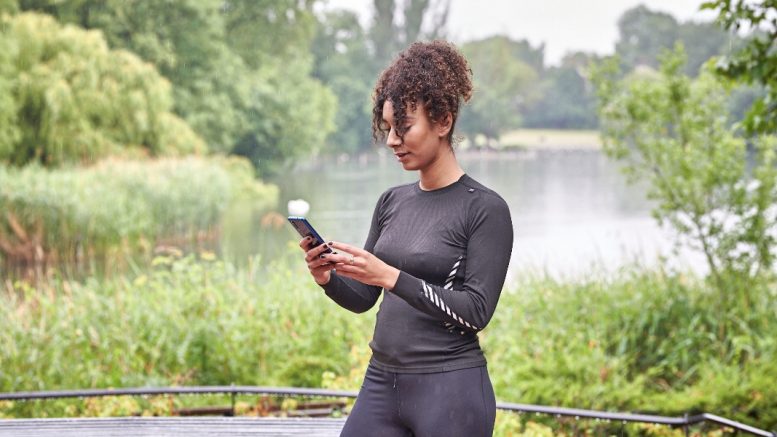-
40 percent of global respondents say technology makes them feel “a lot” or “somewhat” younger
-
On average, people who use tech feel 11 years younger
-
Over three-quarters (83 percent) of US working parents say tech helps feel confident that their kids are safe and secure while they are at work
-
57 percent in US believe devices are currently having a positive impact on the ability to improve their overall health
Technology is making the world feel younger, healthier and more emotionally connected, reveals new research released today by Lenovo (HKSE: 992) (ADR: LNVGY), suggesting a growing relationship between technological innovation and wellbeing.
The research, which surveyed over 15,000 individuals from around the globe, including the US, Mexico, Brazil, China, India, Japan, UK, Germany, France and Italy, not only found 40 percent of global respondents feel “a lot” or “somewhat” more youthful thanks to technology, but on average it made them feel younger by 11 years.
This rings true in the US, where 55 percent of respondents said technology allowed them to more easily keep in touch with family and friends, which could be perhaps due to technologies ability to build connections between generations, especially those who might have once felt disconnected from tech-savvy youngsters. For example, grandparents are now able to better communicate with their grandchildren via smart technology due to its growing ubiquity and ease of use.
The research suggests that this sentiment is felt world-over, across genders and ages. “To know how to operate newer technology makes me feel younger” a US woman respondent, said. Another woman, from France, also stated, “Compared to the younger generation who are born with all these technologies, my adaptability makes me feel younger”. On the other side of the globe, a female respondent in India cited tech as making her feel like she “can do anything with it which any youngster can do,” and a Chinese male respondent said: “It helps me catch up with the times – not only gaining more knowledge, but also feel that I’m on trend; I feel younger”.
The research generally revealed that many older generations think using technology helps them to connect better with younger people as well as feel livelier and more knowledgeable. This is especially evident when it comes to the role smart devices (from PCs, tablets to smart home assistants and more) play in terms of relationships with family and friends. When asked to compare technology today to those of 20 years ago for giving them the ability to feel connected to what is going on in the lives of the people they care about, 65 percent globally answered it’s “getting better”. While 75 percent globally also said technology is improving their ability to stay in touch with family and friends who live far away.
“Technology is powerful and with it we are more efficient, impactful, and connected than ever before. Specifically, older adults are becoming increasingly technology-savvy, developing closer connections to family and friends,” said Janae Brown, Durham Center for Senior Life MSW Program & Volunteer Coordinator. “ Lenovo’s support of Durham Center for Senior Life will allow our members to be active players in the ever-changing world of technology by strengthening their connections with people, empowering them to learn and be a part of new experiences, as well as engage with their health care providers in a more personal way.”
The global research also revealed that tech is helping people when it comes to mental health and wellbeing, offering emotional gains, particularly in parents. Over three-quarters (78 percent) of working parents globally stated the ever-connected nature of technology helps them feel more emotionally connected to their children, even when they are away from home. An even larger portion (83 percent) of US working parents agreed that emerging technologies are making it easier for them to feel confident that their kids are safe and secure while they are at work.
Over two-thirds (57 percent) of respondents in the survey stated they were optimistic about the future of technology and the role tech can play in our lives and society, especially in wellbeing, with 57 percent believing devices are currently having a positive impact on the ability to improve their overall health. And that’s hardly surprising, considering 84 percent also said tech has empowered them to make improvements in their lives overall.
Take for instance how one respondent, a 51-year-old woman from the US, highlighted how science is using technology to do great things for amputees, and enabling those suffering from mental illness to better connect with people from all over the world. “I think that the medical breakthroughs we’ve had are a tremendous statement on how we can have a positive relationship with technology,” she said.
The recognition that tech is helping to improve the quality of life could also be down to the time it saves people. Over one third (39 percent) of US respondents feel their smart devices save them 30 minutes or more a day by helping them do something faster or more efficiently. Similarly, over half (47 percent) in US agreed smart devices, such as computers and smart home devices like smart displays and smart clocks, are making them more productive and efficient..
In terms of personal health, 37 percent of US respondents said smart devices have made it easier for them to access health care providers and make doctor’s appointments, and a further 40 percent of those under 60 years of age in US stated modern tech makes it easier for seniors to contact emergency services.

